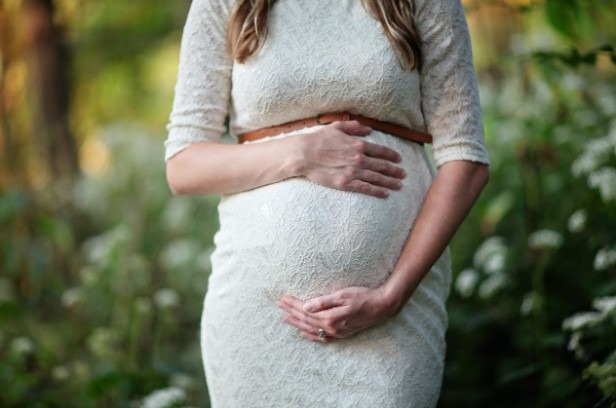A typical pregnancy lasts 40 weeks and is marked by three trimesters: first trimester, second trimester, and third trimester. Each trimester indicates what happens in that baby’s development and the changes that occur in the woman’s body. Follow this guide to see what you can expect during the first few weeks up to the delivery of your new family member.

Body Changes: Weight Gain and Beyond
One change every woman goes through is weight gain. The amount of weight you gain during pregnancy varies, but it has a lot to do with the BMI you had before getting pregnant. Underweight women should focus on gaining more, while overweight women should concentrate on gaining less. You should expect to see a growth of 25 to 35 pounds.
To help minimize the effects of quick weight gain like indigestion, stretch marks, or back pain, you must have pregnancy products that combat them. You’re allowed to exercise during pregnancy, just make sure it’s at low intensity. 30 minutes per day is more than enough to keep you and your baby healthy throughout the three trimesters.
Possible Complications
Not all pregnancies will have health complications, and some issues are more common than others. For example, anemia, mood changes, and urinary tract infections are more likely to occur while pregnant, and hyperemesis gravidarum (morning sickness) almost always occurs. If your morning sickness is severe, it could lead to dehydration or weight loss.
Pregnant women could develop gestational diabetes, which causes symptoms like fatigue, frequent urination, and hunger. As mentioned, watch your weight throughout the pregnancy as excess weight gain could put the mother and baby at risk for health issues.
First Trimester (0 – 13 Weeks)
During the first few weeks of pregnancy, your baby’s body structure and organs develop. Birth defects and miscarriages are more likely to occur during this time. You’ll likely notice multiple changes in your own body and may experience symptoms like:
- Swollen, tender breasts
- Nipple protrusion
- Fatigue
- Taste changes
- Morning sickness or nausea
- Constipation
- Headache
- Frequent urination
- Mood swings
- Weight gain or loss
- Heartburn
Every pregnancy is different, so you may not experience these symptoms. Many women even experience more energy during this time. However, if you do experience any of the above changes, they aren’t usually a cause of alarm. Since your baby is rapidly growing, your body is taking nutrients from your body and separating its time between you and the fetus. This will inevitably cause some complications.
Second Trimester (14 – 26 Weeks)
Often called the “golden period” by doctors because many of the unpleasant side effects of pregnancy disappear. You’ll experience less nausea, increased energy, and better sleep patterns. However, as your abdomen starts to expand, you’ll notice more back and muscle pain. As a positive, you’ll be able to feel your baby move at the end of the second trimester!
You may notice stretch marks start to appear, darkening around your nipples, and a line on the skin that runs from your belly button to public hairline. Sometimes you’ll see darkening in the cheeks or feel numbing in your hands. If you notice itching on your palms, soles, or abdomen or swelling in the face, finger, or ankles, you should contact your doctor.
Third Trimester (27 – 40 Weeks)
You’re in your final stage of pregnancy, which means your baby is putting more pressure on your internal organs. You may have difficulty breathing or have to urinate more frequently, but these symptoms will go away after birth. Hemorrhoids, tender breasts, a protruding belly button, and contractions will occur as you get closer to the due date.
I’m a 20-something stay-at-home mother and wife. I have an amazing husband, a beautiful daughter, two loving dogs, and a lazy cat. I wouldn’t change my life for anything! I love to read, listen to music, cook and blog!

Speak Your Mind